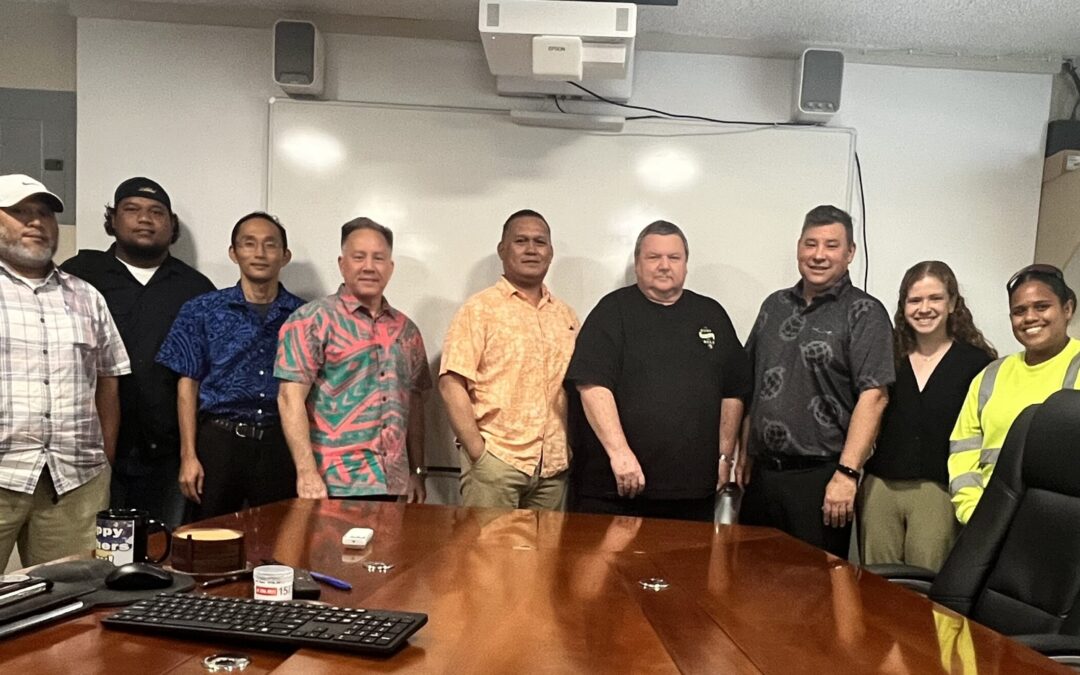Majuro, Marshall Islands – Last month, MEC staff participated in a valuable training opportunity that could help shape the future of energy in the Marshall Islands. The Hawaii Natural Energy Institute (HNEI) delivered a comprehensive two-day workshop in Majuro from April 22-24, focusing on energy transition and grid modernization for island communities.
Learning from Hawaii’s Experience
Hawaii and the Marshall Islands share similar challenges when it comes to energy. Both are isolated island communities that have historically relied on expensive imported fuel. However, Hawaii has made significant progress in adopting renewable energy sources like solar power, with some islands now operating at very high levels of renewable energy.
“The MEC team was ecstatic about the training,” said MEC’s CEO. “We were particularly struck by the parallels between Hawaii’s island challenges and our own situation here in the Marshall Islands. Seeing real-world solutions to high renewable penetration issues gave our team confidence that we too can navigate our own energy transition successfully if we plan it right from the start.”
MEC extends special thanks to the Pacific Power Association (PPA) for nominating our utility company for this valuable training opportunity. The PPA’s continued support of Pacific Island utilities has been instrumental in helping MEC and others in the region advance their technical capabilities.
What Was Covered
The training sessions, provided at no cost to MEC through funding from the U.S. Office of Naval Research and in partnership with the PPA, covered a wide range of important topics:
- Hawaii’s successful clean energy transition
- Managing high levels of solar power on the grid
- Battery energy storage applications
- Planning for renewable energy growth
- Case studies from various Hawaiian Islands
- Competitive procurement of renewable energy resources
The HNEI team also introduced MEC staff to their energy modeling tools, which can help predict how different combinations of power generation sources would work on Majuro’s grid.
Why This Matters for Our Community
Majuro’s electricity system currently runs primarily on diesel generators, with only a small amount coming from solar power. However, MEC is planning significant increases in renewable energy and battery storage in the near future.
As electricity demand in Majuro is expected to grow from the current 9.5 megawatts to potentially 17 megawatts in the next decade, adding more renewable energy will be crucial to controlling costs and reducing our dependence on imported fuel.
Looking Ahead
The training has equipped MEC staff with valuable knowledge as we work toward a more sustainable energy future. The team gained practical insights from Hawaii’s experience that can be applied to our own unique situation.
“MEC looks forward to potential follow-up engagement with HNEI’s technical expertise as we advance our renewable energy initiatives,” the MEC CEO added.
This collaboration represents an important step in MEC’s ongoing efforts to provide reliable, affordable, and increasingly sustainable power to the communities we serve and will serve in the Marshall Islands.
The training was conducted under HNEI’s GridSTART Program, which provides technical assistance to Pacific Island Countries in support of their energy transition goals.
